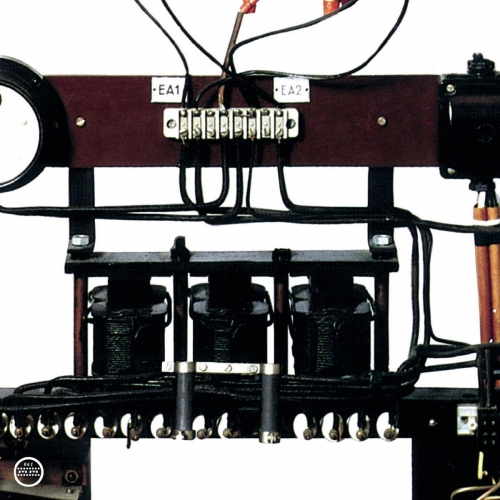Brian Blade & The Fellowship Band - Landmarks (2014) [HDtracks]
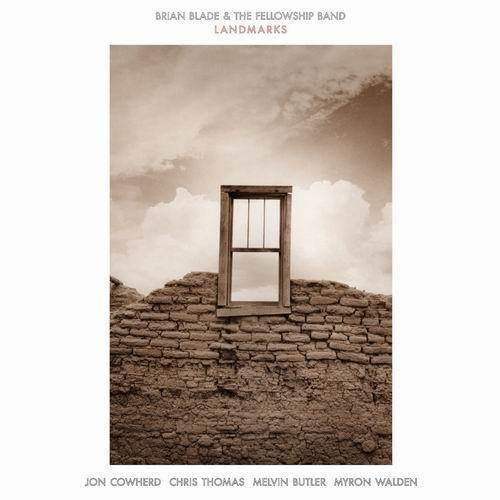
Artist: Brian Blade & The Fellowship Band
Title: Landmarks
Year Of Release: 2014
Label: Blue Note
Genre: Contemporary Jazz, Post-Bop
Quality: FLAC (tracks) 24 bits/96.00 kHz
Total Time: 53:24
Total Size: 1.12 GB
WebSite: Album Preview
Tracklist:Title: Landmarks
Year Of Release: 2014
Label: Blue Note
Genre: Contemporary Jazz, Post-Bop
Quality: FLAC (tracks) 24 bits/96.00 kHz
Total Time: 53:24
Total Size: 1.12 GB
WebSite: Album Preview
1. Down River
2. Landmarks
3. State Lines
4. Ark.La.Tex.
5. Shenandoah
6. He Died Fighting
7. Friends Call Her Dot
8. Farewell Bluebird
9. Bonnie Be Good
10. Embers
Brian Blade - drums, compositions
Melvin Butler - soprano and tenor saxophones
Jon Cowherd - piano, mellotron, pump organ
Myron Walden - alto saxophone, bass clarinet
Chris Thomas - bass
with
Marvin Sewell - guitar (3, 4, 6, 8, 10)
Jeff Parker - guitar (7, 9)
Four records in 16 years may not be prolific, but clearly Brian Blade and his longstanding Fellowship Band aren't about quantity. While a seemingly scant two years separated the drummer's leader debut (and inspiration for the group name), Fellowship (Blue Note, 1998) from its even more impressive follow-up, Perceptual (Blue Note, 2002), the group's next record, Season of Changes (Verve) came a full eight years later in 2008, and beyond a label change also reflected the trimming down of the Fellowship Band from its original septet to a sextet with the departure of pedal steel virtuoso Dave Easley.
Another six years have passed, but Landmarks represents not only another label change as it returns to Blue Note, but some additional shifting on the personnel front, with the departure of Kurt Rosenwinkel, a key member since Perceptual. These days, more often than not, the Fellowship Band is, in performance, a lean but very potent quintet with five of its seven original members intact; for Landmarks, however, the group enlists guitarist Jeff Parker (making a return after being part of the group that recorded Fellowship) and Marvin Sewell to flesh out seven of the album's ten tracks.
While the core quintet is absolutely capable of standing on its own—and as a fully acoustic group to boot, as demonstrated in a knock-out performance at the 2012 TD Ottawa Jazz Festival and virtual roof-raiser at Nasjonal Jazzscene Victoria, during the 2011 Oslo International Jazz Festival—there's no doubt that Parker and Sewell have plenty to offer on a recording that, while retaining some of the fire that's fundamental to the group's live sets, clearly treats the studio as a different environment entirely.
For one thing, the brief opener, Cowherd's minute-long solo improvisation "Down River," is performed on that unwieldy progressive rock stalwart, the Mellotron; but here, the distinctive warbling sound of fluttering flute tapes only gives it a more strangely haunting quality that's the perfect setup for the title track, Cowherd's only other compositional contribution to Landmarks, though his unmistakable piano and pump organ work—as much folk and country simplicity as it is jazz sophistication—is, as ever, a strong definer of the Fellowship Band sound.
"Landmarks" opens with a relatively rare solo from Thomas that, in duet with Cowherd, is the first of many demonstrations from the Fellowship Band members that it's not about individual instrumental virtuosity, though that's a fundamental anyway; it's about surrendering to the needs of the song and, in this case its simply beautiful, singable melody. As Blade enters and Butler and Walden reiterate the theme on soprano saxophone and bass clarinet respectively, the tune unfolds into a soprano solo of similar reverence, as Blade's light cymbal work is juxtaposed with more powerful runs around the kit, creating the punctuations for which he's become known, not just in Fellowship, but with Wayne Shorter and Daniel Lanois. Cowherd takes the final solo and it's a lengthy one but, like the entire album, it tells a story rather than merely demonstrating his intrinsic virtuosity—a mastery required to intuit when to let loose with fireworks and when to keep things spare and simple.
More than merely a reflection of the many physical places this group has traveled in its 16-plus year existence, the album title speaks to inner travels, and a spiritual quality that's been palpable since the group's inception, making its name more than just a word. It's also a reflection of extracurricular activities brought back to the group, whether they're Walden's overtly jazz-centric Momentum (Demi Sound, 2009), more reflective In This World (Demi Sound, 2010) and aptly titled Countrified (Demi Sound, 2010); Blade's exploratory work with Shorter's Quartet (together almost as long as the Fellowship Band) and similarly searching work, albeit in a more rock-centric context, with Lanois on projects like Black Dub (Jive, 2010); or Cowherd' s work with everyone from singer/songwriter Rosanne Cash and Canadian bassist Chris Tarry to saxophonist Marcus Strickland and punk idol Iggy Pop. But rather than any of these disparate elements being obvious, they're subsumed into the unmistakable, singular voice that the Fellowship Band continues to evolve, gig after gig, year after year.
Landmarks feature s a number of brief, sometimes through-composed miniatures that act as thematic threads that join the album together as a conceptual whole. Sewell's improvised piece of ambient soundscaping on "State Lines," reflects and sets up the five primary notes of Blade's "Ark.La.Tex." which follows, a lengthy exploration that builds slowly, with Butler and Walden (this time on tenor and alto saxophones) creating the thematic unison lines that occasionally, wonderfully, diverge, only to reunite as one. The piece begins to pick up steam, leading to an open middle section where Walden's prowess is bolstered by the joined-at-the-hip pocket created by Blade and Thomas, only to find its way back to the original theme and, ultimately, the composition's primary five-note motif, ending, as it began, with Sewell's ambient landscape, but this time with Cowherd creating a larger sound on pump organ. It's a marvelous piece of writing that, in its construction, seems to expand and contract as its episodic movements move outwards from its gentler beginnings, only to come full circle by the time it closes, twelve minutes later.
Another six years have passed, but Landmarks represents not only another label change as it returns to Blue Note, but some additional shifting on the personnel front, with the departure of Kurt Rosenwinkel, a key member since Perceptual. These days, more often than not, the Fellowship Band is, in performance, a lean but very potent quintet with five of its seven original members intact; for Landmarks, however, the group enlists guitarist Jeff Parker (making a return after being part of the group that recorded Fellowship) and Marvin Sewell to flesh out seven of the album's ten tracks.
While the core quintet is absolutely capable of standing on its own—and as a fully acoustic group to boot, as demonstrated in a knock-out performance at the 2012 TD Ottawa Jazz Festival and virtual roof-raiser at Nasjonal Jazzscene Victoria, during the 2011 Oslo International Jazz Festival—there's no doubt that Parker and Sewell have plenty to offer on a recording that, while retaining some of the fire that's fundamental to the group's live sets, clearly treats the studio as a different environment entirely.
For one thing, the brief opener, Cowherd's minute-long solo improvisation "Down River," is performed on that unwieldy progressive rock stalwart, the Mellotron; but here, the distinctive warbling sound of fluttering flute tapes only gives it a more strangely haunting quality that's the perfect setup for the title track, Cowherd's only other compositional contribution to Landmarks, though his unmistakable piano and pump organ work—as much folk and country simplicity as it is jazz sophistication—is, as ever, a strong definer of the Fellowship Band sound.
"Landmarks" opens with a relatively rare solo from Thomas that, in duet with Cowherd, is the first of many demonstrations from the Fellowship Band members that it's not about individual instrumental virtuosity, though that's a fundamental anyway; it's about surrendering to the needs of the song and, in this case its simply beautiful, singable melody. As Blade enters and Butler and Walden reiterate the theme on soprano saxophone and bass clarinet respectively, the tune unfolds into a soprano solo of similar reverence, as Blade's light cymbal work is juxtaposed with more powerful runs around the kit, creating the punctuations for which he's become known, not just in Fellowship, but with Wayne Shorter and Daniel Lanois. Cowherd takes the final solo and it's a lengthy one but, like the entire album, it tells a story rather than merely demonstrating his intrinsic virtuosity—a mastery required to intuit when to let loose with fireworks and when to keep things spare and simple.
More than merely a reflection of the many physical places this group has traveled in its 16-plus year existence, the album title speaks to inner travels, and a spiritual quality that's been palpable since the group's inception, making its name more than just a word. It's also a reflection of extracurricular activities brought back to the group, whether they're Walden's overtly jazz-centric Momentum (Demi Sound, 2009), more reflective In This World (Demi Sound, 2010) and aptly titled Countrified (Demi Sound, 2010); Blade's exploratory work with Shorter's Quartet (together almost as long as the Fellowship Band) and similarly searching work, albeit in a more rock-centric context, with Lanois on projects like Black Dub (Jive, 2010); or Cowherd' s work with everyone from singer/songwriter Rosanne Cash and Canadian bassist Chris Tarry to saxophonist Marcus Strickland and punk idol Iggy Pop. But rather than any of these disparate elements being obvious, they're subsumed into the unmistakable, singular voice that the Fellowship Band continues to evolve, gig after gig, year after year.
Landmarks feature s a number of brief, sometimes through-composed miniatures that act as thematic threads that join the album together as a conceptual whole. Sewell's improvised piece of ambient soundscaping on "State Lines," reflects and sets up the five primary notes of Blade's "Ark.La.Tex." which follows, a lengthy exploration that builds slowly, with Butler and Walden (this time on tenor and alto saxophones) creating the thematic unison lines that occasionally, wonderfully, diverge, only to reunite as one. The piece begins to pick up steam, leading to an open middle section where Walden's prowess is bolstered by the joined-at-the-hip pocket created by Blade and Thomas, only to find its way back to the original theme and, ultimately, the composition's primary five-note motif, ending, as it began, with Sewell's ambient landscape, but this time with Cowherd creating a larger sound on pump organ. It's a marvelous piece of writing that, in its construction, seems to expand and contract as its episodic movements move outwards from its gentler beginnings, only to come full circle by the time it closes, twelve minutes later.
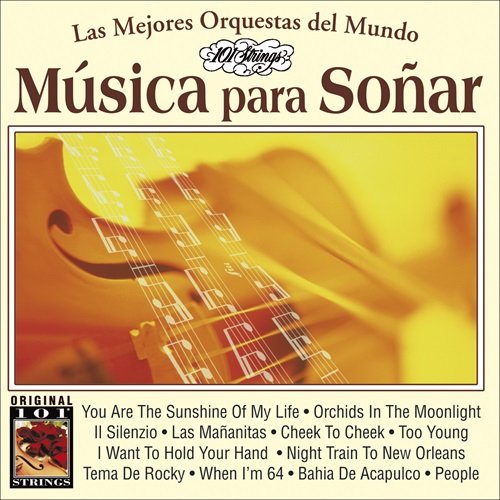
![Julian Lage - Scenes From Above (Japanese Edition Bonus Track) (2026) [SHM-CD] Julian Lage - Scenes From Above (Japanese Edition Bonus Track) (2026) [SHM-CD]](https://www.dibpic.com/uploads/posts/2026-02/1772029332_front.jpg)
![Cheo Feliciano - Mi Tierra y Yo (Remastered 2026) (2026) [Hi-Res] Cheo Feliciano - Mi Tierra y Yo (Remastered 2026) (2026) [Hi-Res]](https://img.israbox.com/img/2026-02/26/3utwbyq7th3hn4a5zsf7qsky1.jpg)
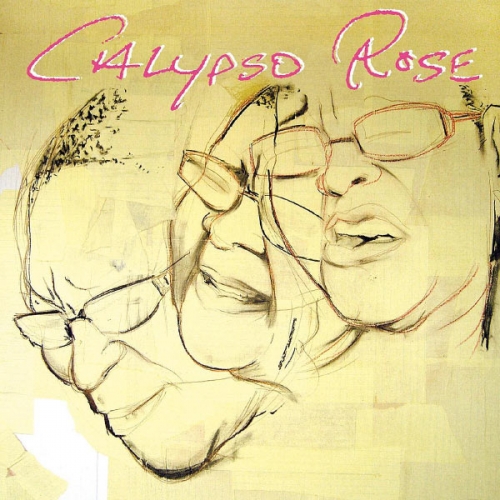

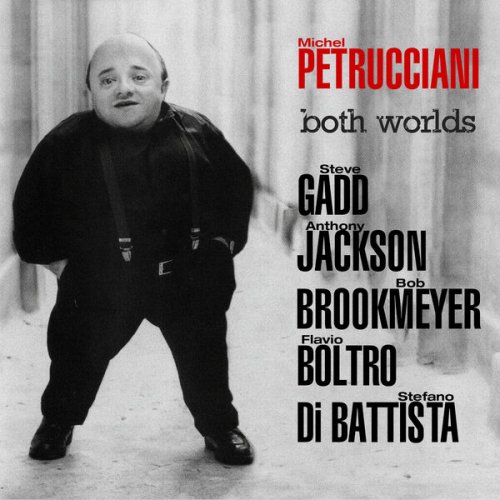
![Nathalie Darche, Alban Darche, Geoffroy Tamisier, Chloé Cailleton - Dandy Dandie - Helios y Selene (2026) [Hi-Res] Nathalie Darche, Alban Darche, Geoffroy Tamisier, Chloé Cailleton - Dandy Dandie - Helios y Selene (2026) [Hi-Res]](https://www.dibpic.com/uploads/posts/2026-02/1772112437_snbggfr6gccwr_600.jpg)

